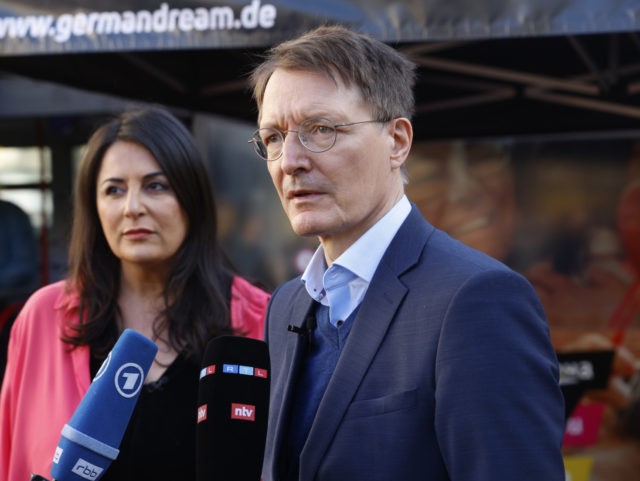Germany’s current plans to implement a compulsory vaccination regime is utterly unworkable, according to organisations who would be put in charge of enforcing it.
Despite forced vaccination still being very much on the cards politically in Germany, a number of companies which would be forced to take responsibility for its enforcement have claimed that the current plans put in place by the government are utterly unworkable.
Under the proposed measures, insurance companies in the Federal Republic would be made responsible for enforcing the regime, and would be told to send letters to all of their customers checking whether or not they are vaccinated so fines could be sent to all of the unjabbed.
However, according to a report by Bild, the country’s proposed plans are “impossible” for the insurance industry to implement on multiple levels.
First, the companies claim that they simply do not have the ability to send the more than 60 million letters the German government will require them to within the time period set out by the plan.
Europe is currently facing a serious paper shortage, which would drive up the cost of such a measure beyond feasibility, while EU tendering laws would force companies to advertise requests for external printing orders all across Europe in a process that would take months.
“The implementation of the entire process is impossible with the in-house and on-board funds of the health insurance companies,” the commercial organisations said.
However, even if these companies were able to send all of the required letters within a reasonable time frame, other issues would remain that would make the plan completely unfeasible.
All of the insurers involved expect that they would face a blowback of complaints and inquiries after sending out the letters.
This would in turn overwhelm their call centres and force them to take on more staff to deal with the deluge, something they reportedly cannot afford.
Then there is also the issue of verifying whether or not a person is vaccinated, with only digital COVID certificates being relatively easily verifiable as real, making the process even more difficult.
There would also be issues regarding those who do not respond to letters sent requesting proof of vaccination.
Under the current plans, these people would be assumed to be unvaccinated and sent fines, but the insurance companies emphasised that some vaccinated individuals may simply not receive a letter — due to a change in their address — or may be in a position where they are not able to respond due to some complication, leading to further headaches.
Lastly, the insurance companies raise the issue of consumer trust.
Under the proposed rules, the organisations would be forced to pass on the information of their unvaccinated customers to authorities so they could administer fines, something the insurance industry fears could “severely burden the important relationship of trust between insured persons and health insurance companies”.
Despite the seemingly car-crash nature of the plan itself, a substantial percentage of Germany’s political class — including the country’s leftist Chancellor, Olaf Scholz — still appear to support the implementation of forced vaccination.
Perhaps the most militant supporter of the measure however is the country’s Federal Health Minister, Karl Lauterbach, who claimed that the measure is needed to allow Germans to return to normality.
“The unvaccinated bear the responsibility that we do not get any further,” the health minister said. “The whole country will be held hostage by these people.”
“We can no longer afford that,” he seethed, saying that the pandemic could be ended by a vaccine mandate.
However, some of his colleagues do not think the same way, with the German parliament’s vice president, Wolfgang Kubicki, warning that the proposal should be pulled so as to not risk a colossal public relations disaster for the three-party coalition government.
“It’s about time that Janosch Dahmen, Karl Lauterbach, and Co. distance themselves from this and bury the general obligation to vaccinate politically,” Bild reports the Free Democratic Party (FDP) politician as saying as he warned against pushing the plan any further.

COMMENTS
Please let us know if you're having issues with commenting.